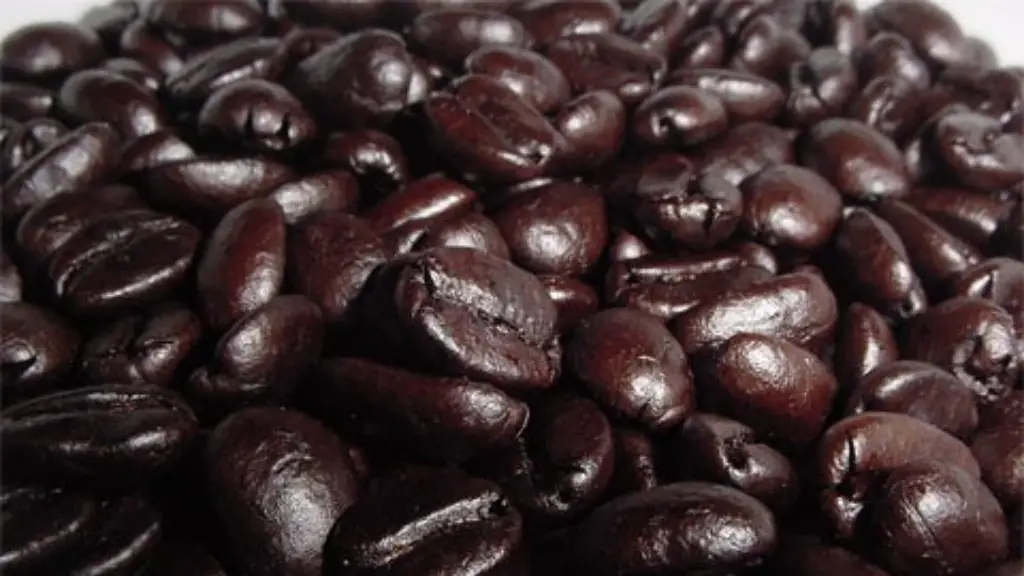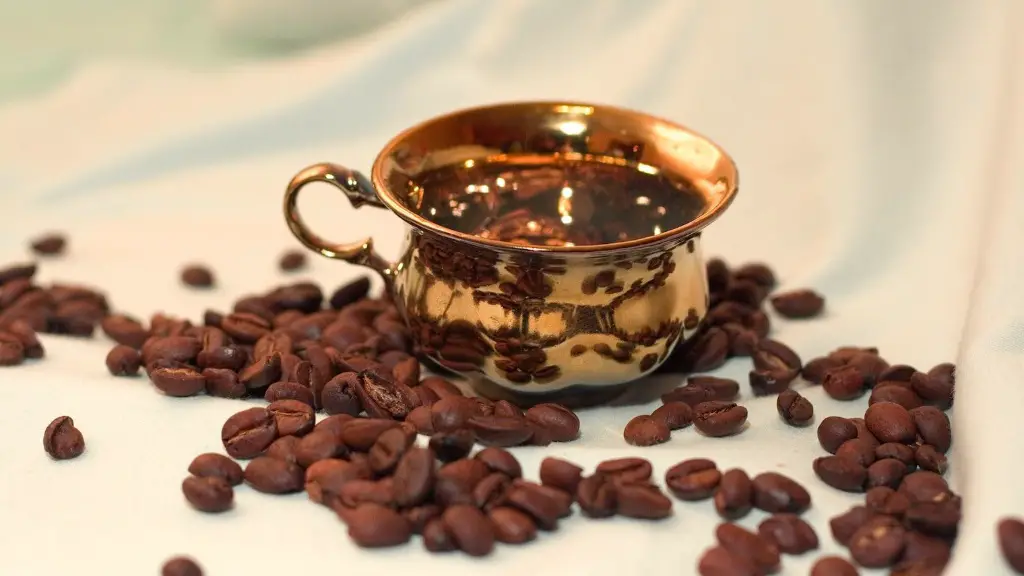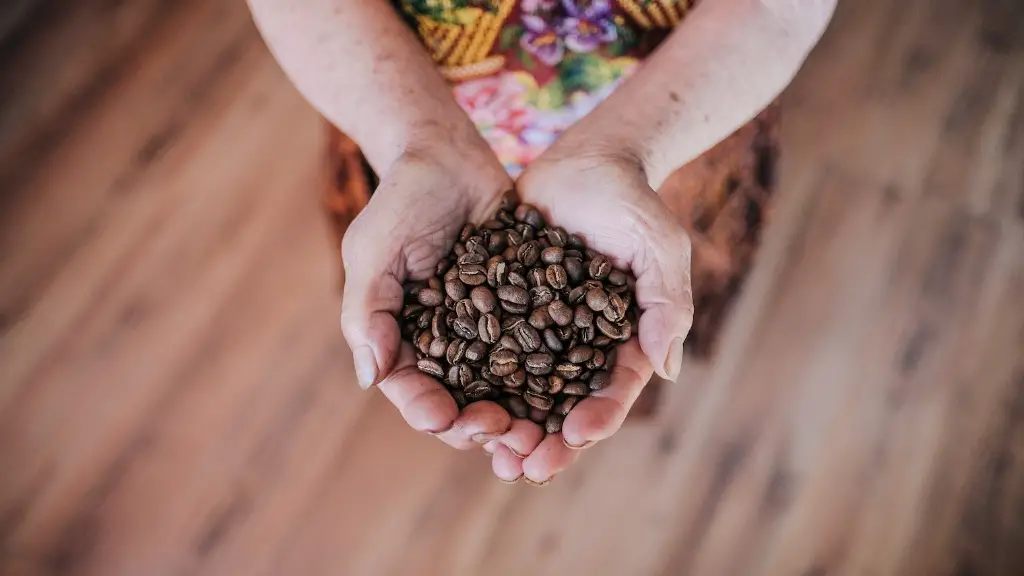The coffee industry has come under scrutiny in recent years for its use of pesticides. Coffee beans are one of the most heavily sprayed crops in the world, and many of the pesticides used are considered to be highly toxic. Some of the most commonly used pesticides in coffee production are aldicarb, maneb, and methamidophos. These pesticides have been linked to a variety of health problems, including cancer, reproductive toxicity, and nerve damage. Although the coffee industry has made some progress in reducing its use of pesticides, more needs to be done to protect the health of workers and consumers.
There is no definitive answer to this question as it varies depending on the country of origin and the specific farm where the coffee beans were grown. However, it is generally accepted that coffee beans are heavily sprayed with pesticides, which can be harmful to both human health and the environment.
Are coffee beans covered in pesticides?
Coffee is the number one pesticide sprayed crop in the world. Because coffee beans are so expensive compared to other crops, farmers will do everything it takes to protect their crops from various pests using pesticides the use of fertilizers to help them grow.
Organic coffee is the best option if you’re looking for the least pesticides in your cup. Different types of certification (USDA certified organic as well as Smithsonian Institute Bird Friendly and Rainforest Alliance certification) are important to consider when choosing organic coffee. Shade grown coffee is also an important factor in protecting the environment.
Are Starbucks coffee beans sprayed with pesticides
While it is true that some Starbucks coffee beans may be sprayed with pesticides, the company has taken steps in recent years to reduce the use of these chemicals. In addition, the FDA has strict limits in place for the amount of pesticide residue that can be present in coffee beans. Therefore, while there is a potential for some pesticide exposure from drinking Starbucks coffee, the risks are likely to be low.
It’s no secret that coffee is one of the most heavily sprayed crops in the world. In fact, 97% of the world’s coffee beans are non-organic and treated with pesticides, herbicides, fungicides, and other chemicals. And unfortunately, these chemicals make it all the way into your morning brew.
So what does that mean for your health? Studies have linked coffee consumption with an increased risk of cancer, reproductive toxicity, and other serious health problems. So if you’re a coffee lover, you might want to consider switching to organic. It may cost a bit more, but it’s worth it for your health.
Does organic coffee mean no pesticides?
It’s important to remember that certified organic doesn’t mean no pesticides. There are many fertilizers and pesticides that are allowed under organic certification. Most of them are non-synthetic (naturally occurring), but there are a few approved synthetic ones in the mix. So, if you’re looking for a completely pesticide-free product, you’ll want to look for something that is labeled “pesticide-free” or “no pesticides used.”
The healthiest way to take your coffee is hot-brewed and black. One cup has virtually no calories or carbs, no fat, and is low in sodium. Black coffee also has micronutrients, including potassium, magnesium, and niacin.
What are the healthiest coffee beans to buy?
Some recent research has suggested that coffee may be healthiest when it is lighter in roasted, specifically blonde roasts. This is due to the fact that blonde roasts have the highest antioxidant content, followed closely by blonde and then medium-roast Arabica coffee. These findings are significant because antioxidants are believed to have a range of health benefits, including reducing the risk of chronic diseases such as heart disease and cancer. Therefore, if you are looking for the healthiest option when it comes to coffee, opt for a blonde roast.
We are really impressed with the Natural Force Clean Coffee and how it is made with high-quality ingredients and free of harmful contaminants. It’s our top pick for the best coffee around!
Is Folgers coffee full of pesticides
The coffee supply chain is free of pesticides, herbicides, and fungicides. In most liquid flavors, up to 85% of propylene glycol is present. This means that the coffee you drink is free of harmful chemicals and is safe for consumption.
There are a few things that can be done to help rid the body of glyphosate. First, binders such as humic or fulvic acid and chlorella may bind to glyphosate in the GI tract and help remove it. Second, nutrients can help support the detoxification system, particularly the liver, to help the body better process the chemical.
What coffee does not have chemicals?
Organic coffee is a great choice for those who are looking for a healthier option. The coffee is grown with only natural fertilizers and practices, so you can be confident that there are no chemical or synthetic fertilizers, pesticides, or GMOs used in the farming process. Plus, organic coffee is grown in an environmentally responsible way, so you can feel good about supporting sustainable farming practices.
Based on what has been studied, it is believed that herbicides, fungicides, and pesticides are burned off or rendered inert during the roasting process and therefore pose little to no risk to coffee drinkers. While residuals may be present in green/unroasted coffee, it is not believed to be a cause for concern.
Which coffee has the most chemicals
Coffee is one of the most popular beverages in the world, but many people don’t realize that conventional coffee is among the most heavily chemically treated foods. Coffee beans are often steeped in synthetic fertilizers, pesticides, herbicides, fungicides, and insecticides, which can be harmful to both humans and the environment. If you’re concerned about your health and the environment, look for organic, Fair Trade coffee that has been grown without the use of harmful chemicals.
COFFEE STILL HAS POTENTIAL RISKS
Mostly due to its high caffeine content, coffee still has potential risks. For example, it can temporarily raise blood pressure. Women who are pregnant, trying to become pregnant or breastfeeding need to be cautious about caffeine.
What foods are high in pesticides?
Strawberries and spinach continue to top the annual list of the “Dirty Dozen” fruits and veggies that contain the highest levels of pesticides, according to the Environmental Working Group’s 2022 Shopper’s Guide. The Dirty Dozen list includes the following fruits and vegetables:
1. Strawberries
2. Spinach
3. Kale
4. Collard greens
5. Mustard greens
6. Nectarines
7. Apples
8. Grapes
9. Bell peppers
10. Hot peppers
The best way to avoid pesticide exposure is to buy organic versions of these fruits and vegetables. However, if organic is not available or affordable, you can reduce your exposure by thoroughly washing and peeling these foods before you eat them.
Organic coffee is the healthier, better option for you because it’s not treated with toxins. Organic coffee can be higher in antioxidants, vitamins, and minerals.
Does Dunkin Donuts coffee have pesticides
The JM Smucker Company, which supplies coffee to Dunkin’ Donuts, uses pesticides, fungicides, and fertilizers in its coffee. This results in an average of 47 million cups of coffee consumed at Dunkin’ Donuts each day containing these chemicals.
The Toxic Substances Hydrology Program of the US Geological Survey has found that a square mile of cotton is sprayed with as much as 3988 pounds of herbicides, and 2849 pounds of insecticides, three to five times more than corn gets. This high level of pesticide use can have harmful effects on the environment and human health.
Final Words
There is no definitive answer to this question as the amount of pesticides used on coffee beans varies depending on the farm and the country. However, it is generally agreed that coffee beans are heavily sprayed with pesticides and that most of these pesticides are residue from sprayed chemicals.
While there is no definitive answer to this question, it seems that coffee beans are indeed heavily sprayed with pesticides. This is particularly concerning given the fact that coffee is one of the most popular beverages in the world, and many people consume it on a daily basis. If coffee beans are heavily sprayed with pesticides, it is possible that these chemicals could end up in our cup of coffee and potentially cause health problems. Until we have more information, it might be wise to limit our consumption of coffee or choose organic beans to reduce our exposure to pesticides.





